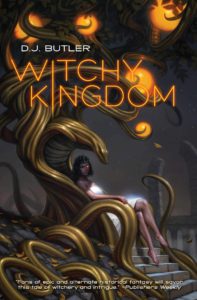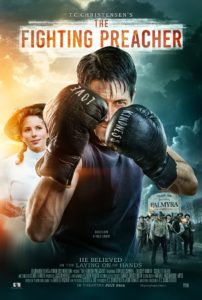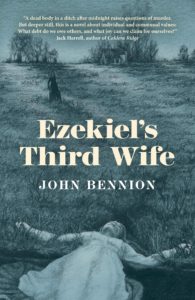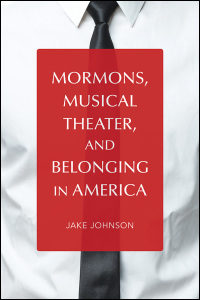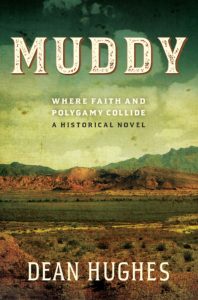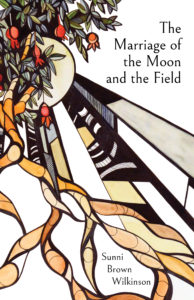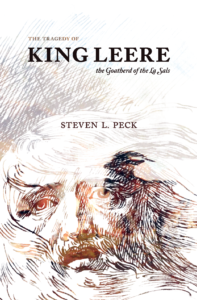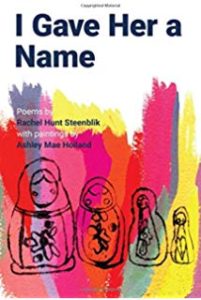This is the first “This Month” that we have done since March. I am not sure if we will continue with the column, at best it will be only occasional. I have been working on editing a collection of Maurine Whipple’s lost and unpublished stories, and most of my Mormon literature bandwidth has gone there. I try to post Mormon literary and arts news in the AML Facebook feed, so that is the best place to keep up with the news. I don’t announce new books there, however, and too many excellent books have been published this year for me to give up on this effort entirely.
News and Awards
Over the last few months, there has been the wonderful AML Conference at Berkeley, which included the AML Awards and lifetime awards for Carol Lynn Pearson and Melissa Leilani Larson, the Whitney Awards, and the June 2019 Center for Later-day Saint Arts Festival in New York City.
Noah Van Sciver was nominated for two Eisner nominations, although he was not the final winner in either category.
Best Humor Publication
A Perfect Failure: Fanta Bukowski 3 (Fantagraphics)
Best Reality-Based Work
One Dirty Tree (Uncivilized Books)
The film Jane and Emma won the feature film jury award and audience award and the LDS Film Festival.
Kiersten White’s The Dark Descent of Elizabeth Frankenstein won the Horror Writer Association’s Bram Stoker Young Adult Award.
Winner: The Seven Deadly Housewarmers” by Emily Harris Adams
Around the World in Mormon Lit Contest
Audience award: “Um Domingo na Laginha” (“A Sunday at Laginha”) by César Augusto Medina Fortes
Judges award: “TIEMPO una partícula” (“TIME a particle”) by Citlalli H. Xochitiotzin
Center for Latter-day Saint Art Festival, June. Included:
How Poetry Works, with Lance Larsen, Susan Howe and Michael Lavers.
A Night Song: A Play with Music in One Act Excerpt/reading. Davey Erekson and Jamie Erekson.
Keynote: David F. Holland. Coming of Age on Landscapes of Faith: Art and Religion in the American Novel.
Thorns & Thistles. A three-act concert of literary works focused on the rich landscape of Latter-day Saint explorations of the creation and The Garden of Eden. With James Goldberg, Nicole Goldberg, Arisael Rivera, Nicole Pinnell, and guests. Includes works by Includes works by Steven Peck, Eric Samuelsen, Faith Heard, Darlene L. Young, Scott Hales, Eric W Jepson, Emily Harris Adams, Angela Sweat Hallstrom, Melissa Leilani Larson, Lisa Rumsey Harris, Aivar Lembit, Nicole Wilkes Goldberg, Merrijane Barton Rice, Citlalli H Xochitiotzin, Jonathon Penny, Wm Morris, Kathy Cowley, Melody Newey Johnson, Gabriel González Núñez, and James Goldberg.
Heart of Africa. Advance Screening of the film, Tshoper Kabambi and Margaret Blair Young.
The Book of Jer3miah-10th Anniversary Screening and Discussion. Jeff Parkin and Jared Cardon.
Eric W Jepson. “Reading May Swenson.” Fall 2018 Inscape Poetry Prize. The poem appeared in the BYU literary magazine.
Sterling Van Wagenen, a Latter-day Saint filmmaker, was sentenced to six years to life for child sex abuse.
Short stories and essays
“You Can Give Him a Kiss,”by Alison Maeser Brimley. Sunstone, June. A woman is torn between a boyfriend who doesn’t mind changing her colostomy bag and a pair of LDS missionaries in this award-winning story. This story won first place in the 2017 Sunstone Fiction Contest.
Scott Russell Morris. “Of Saints and Seeds”. The Remembered Arts Journal. April 2019. “A lyric essay/memoir about my first garden.”
Scott Russell Morris. “Just Like Home”. Hinterland Magazine. Spring 2019. Flash non-fiction.
Brittany Long Olsen. “I almost gave up on religion. Then a ghost changed my mind.” The Lily, May 4.
Dustin Steinacker. “Reading Dead Lips”. Intergalactic Medicine Show#67, Feb. 2019.
Magazines
BYU Studies Quarterly 58:2(2019). Includes essays by Clark Monson, Sam Brown, and Ben Schilaty, and poetry by Matthew Scott Stenson and J. S. Absher.
Dialogue: a journal of Mormon thought Spring 2019 inclues:
Short fiction: Karin Anderson. “Excerpts from before us like the land of dreams.”
Reviews: 1. Ryan Habermeyer‘s short story collection The Science of Lost Futures, reviewed by Ryan Shoemaker
2. Steven Peck‘s short story collection Tales From Pleasant Grove, reviewed by Charles Inouye.
3. Matthew Babcock‘s short story collection Four Tales of Troubled Love, reviewed by Jonathon Penny
4. Hildebrando de Melo (with Glen Nelson)’s art collection Nzambi (God).Reviewed by Jenny Champoux
5. John Bennion‘s novel An Unarmed Woman, Reviewed by Helynne Hollstein Hansen.
6. David Dollahite’s non-fiction God’s Tender Mercies, reviewed by Doug Gibson
Personal Voices essays by Heidi Naylor, Sara Lake, Margaret Blair Young, and Blaire Ostler. Poetry by Rachel Hunt Steenblik, Mette Harrison, Linda Hoffman Kimball, Terresa Wellborn, Emily Brown, Cheryl L. Bruno, Melodie Jackson, Dayna Kidd Patterson, Elizabeth Pinborough, and Dalene Rex Rowley.
Dialogue: A Journal of Mormon Thought, Sumer 2019. Includes Levi Peterson’s short story “Bode and Iris”, about an unplanned pregnancy between two young rural Utahans of different faith backgrounds. Poetry by Margaret Bushman-Carlton, Dennis Marden Clark, Simon Peter Eggersten, and Eric W Jepson. A personal essay, “Timo’s Blessing”, by Peter de Schweinitz.Michael Hicks review of Contemporary Mormon Pageantry: Seeking After the Deadby Megan Sanborn Jones. Luisa Perkins review of The Book of Abishby Mette Harrison.
Criticism essays
John Durham Peters. “Another Mormon Education” Public Books. On Tara Westover’s Educated, and the long history of rural Mormons pursuing higher education. Also discusses two other new books, Thomas Simpson’s American Universities and the Birth of Modern Mormonism, 1867–1940 and Jana Riess’s The Next Mormons: How Millennials Are Changing the LDS Church.
John Mark Reynolds. “The Mistborn Trilogy: Provoking, Entertaining Fiction (And Bonus on our Mormon Neighbor)”.Patheos.
John Mark Reynolds. “Wax and Wane: Just What Happened to Brandon Sanderson?” Patheos.
New Books and their reviews
Criticism and literary history:
Jake Johnson. A Theology of Voice: Mormons, the Musical Stage, and Belonging in America. University of Illinois Press, June 30. “The Church of Jesus Christ of Latter-day Saints adopted the vocal and theatrical traditions of American musical theater as important theological tenets. As Church membership grew, leaders saw how the genre could help define the faith and wove musical theater into many aspects of Mormon life. Jake Johnson merges the study of belonging in America with scholarship on voice and popular music to explore the surprising yet profound link between two quintessentially American institutions. Throughout the twentieth and twenty-first centuries, Mormons gravitated toward musicals as a common platform for transmitting political and theological ideas. Johnson sees Mormons using musical theater as a medium for theology of voice—a religious practice that suggests how vicariously voicing another person can bring one closer to godliness. This sounding, Johnson suggests, created new opportunities for living. Voice and the musical theater tradition provided a site for Mormons to negotiate their way into middle-class respectability. At the same time, musical theater became a unique expressive tool of Mormon culture.” Cultural Hall podcast appearance. He wrote the Dialoguearticle, “Mormons, Musical Theatre, and the Public Arena of Doubt.”
Poetry books:
Brooke Larson. Origami Drama. Quarterly West, March. Chapbook. Won an award from Quarterly West.
Nancy Ross and Kristen R. Shill, editors. Shades of Becoming: Poems of Faith Transition. Self, June 21. Exponent II review.
Kathryn Knight Sonntag. The Tree at the Center.BCC Press, May. AML guest post.
Rachel Hunt Steenblik. I Gave Her a Name. BCC Press, April.
Sunni Wilkinson. The Marriage of the Moon and the Field. Black Lawrence Press, August. Sunni Brown Wilkinson’s poetry has been published or is forthcoming in Crab Orchard Review, Sugar House Review, Ascent, Cimarron Review, The Cossack Review, Southern Indiana Review and other journals and anthologies and has been nominated for two Pushcarts and a Best of the Net.
Darlene Young. Homespun and Angel Feathers. BCC Press, May. AML guest post.
Novels, non-fiction, and other books:
Jett Attwood. Please, Please, Call Me to the Bishopric. August. LDS cartoons. venmo @Jett_Atwood
John Bennion. Ezekiel’s Third Wife. Roundfire, June 1. Historical mystery. Sequel to An Unmarried Woman.“It’s past midnight in the desert of Utah in the 1890’s. Rachel, the third wife of a Mormon patriarch, sneaks out to make love to her secret, second husband. Instead of him, she finds her sister wife murdered in an irrigation ditch and her new husband’s boot prints around the body. Her stepfather gathers a posse to track the apparent killer. Rachel is left behind in town, trying to uncover the real killer before her stepfather catches up to her husband and one shoots the other. This contemporary western mystery explores tensions inside communities and gives us a new refreshing strong female heroine. As independent-minded amateur detective Rachel uses evidence and logic to uncover the murderer, she is also exploring the texture of the very fabric that holds the settlers together. Not just water, but all resources are precious in the arid land they farm; a scarcity which often results in anger and violence. Can she untangle the tight web woven by diverse peoples welded into powerful communities in the harsh landscapes of western Utah?”
Julie Berry. Lovely War. Viking, March 5, 2019. MG historical fantasy. Ares, Aphrodite, and World War I.
New York Times Book Review: “[A] virtuoso historical fantasy…The bickering gods, romantic rendezvous and exploding shells, set against impeccably rendered Paris streets and sandbagged trenches, read like a divine mix of Kate Atkinson and Neil Gaiman. When the hurly-burly’s done, and the battle’s lost and won, does Love conquer War? The answer is never in doubt, but it’s a pleasure to have it confirmed by a celestially inspired storyteller.”
PW (Starred). “Berry brings to life wartime horrors and passions with commentary from Olympian gods in this love story filled with vivid historical detail. To show her husband, Hephaestus, the real meaning of love and its connection to war and art, Aphrodite (with the help of Apollo, Hades, and Ares) tells the emotion-packed WWI saga of two besotted couples drawn together by music and war: British pianist Hazel and soldier James; African-American jazz musician Aubrey and Colette, a Belgian war orphan with a remarkable singing voice. After James reports to duty, Hazel follows, taking a wartime volunteer position in France. There, she meets Colette, who is still reeling from her wartime losses, and introduces her to Aubrey, who quickly steals Colette’s heart. James and Aubrey witness horrors on and off the battlefield, and Hazel and Colette cling to each other during the best of times, such as when Hazel has the opportunity for a brief reunion with James, and the worst, as when Aubrey goes missing. Berry’s evocative novel starts slow but gains steam as the stories flesh out. Along the way, it suggests that while war and its devastation cycles through history, the forces of art and love remain steady, eternal, and life-sustaining.”
Bulletin for the Center for Children’s Books: “The tale-within-a-tale setup is brilliantly effective here, with the human drama amplified by the addition of divine narrators, and the gods’ voices play appropriately to their known character: Ares brings either anger or indifference, Apollo radiates charm, and Hades evinces a quiet authority. Among both gods and mortals, however, Aphrodite is the true star of this show, bold in her certainty of her mortals’ hearts, fierce in her protection of them, and glorious in her defiant insistence that love is more than “silly romances” (Ares’ words) and it cannot be invalidated or overrun by violence, arrogance, or death. Matching Aphrodite in beauty and elegance is Berry’s exquisite prose, as she lights up her settings—battlefronts, Paris, even a Manhattan apartment—with an electrifying lyricism, while leaving the briefest, barest sentences to create profoundly emotional moments. In any other hands, this might seem off balance, but the space she affords her characters to yearn, love, and grieve zeroes in on the weight of the scene, stripping it of pageantry to its most crystalized, pure sentiment. When, for example, Colette reveals to Aubrey the horrific murders of her family and the razing of her village, it is a scene merely half a page, without dialogue and little detail but with arresting power in its quietness. Similarly, Hazel’s giddy reaction to James’ smile and her decision to be with him is summed up thusly: “It was the dimples. Empires have swiveled on less.” This is a moving, brutal, and yes, lovely, story of the ways in which people find hope in a world gone mad, and why Love remains powerful, even when we mortals are at our worst.”
Entertainment Weekly: A-. “Berry perfectly merges these two worlds, trading their togas for two-tone shoes and A-line dresses. The gods are every inch what we remember them from classical mythology — Aphrodite, vivacious and erotic; Ares, hot-tempered and cruel; Hephaestus, gruff and slovenly — while taking on a literary elegance and lilting quality unique to Berry’s writing. Whatever muse is singing in Berry to produce her lyrical writing, we’d like to lobby for their services. The story itself is intoxicating. Alongside the other gods she holds in thrall, Aphrodite enraptures the reader, the twists and turns of her lovers’ stories both unexpected and true to the sobering realities of so many who lived through the Great War. Her research is impeccable, but it never overrides the breathless sensation that we are accompanying the gods along on a wisp of air, flitting in and out of the tragedies and triumphs of these individual’s lives. Occasionally, the other gods’ reactions to Aphrodite’s stories, their tears in particular, feel manufactured, outweighing the response of the reader. It’s hard to know if that’s intentional or a clever bit of emotional manipulation designed to make a reader feel a moment more deeply. Usually, though, it has the opposite effect and undercuts something that slices deep without any added maudlin pathos . . . The novel is a gripping wartime love story, but it’s also an original, breathtaking examination of how humanity’s ills, from violence to racism, are conquered by our better tendencies: friendship, passion, empathy, and deep, tender, true love. Whether you believe in God(s) or not, Lovely War is a compelling take on fate, loss, and hope — and how when everything else hangs in the balance, love resounds as the most complicated, mystifying, resilient force of all.”
SLJ (Starred): “Readers will be swept away by Berry’s lyrical prose, evenly paced alternating chapters, and unforgettable characters who will jump off the page and resonate with teens. Her acute attention to historical detail is supported by thorough back matter touching upon the racism and sexism of American armed forces at the time. While the conceit of meddling Greek gods sometimes borders on contrivance, the format is ultimately successful. This rumination on the costs of war, the healing power of love and music, and the inevitability of death will stay with readers and tug at their hearts. A must where historical fiction and Berry’s previous titles are popular.”
Marilyn Brown. The Black Canary. Walnut Spring, July 2. Historical fiction, set in 1920s Helper, Utah. “Italian immigrants Sol and Micca Morelli have made their home in Helper, Utah, where they raise canaries that warn miners of poisonous gases in the underground tunnels. Sol and his son Loucas work in the coal mines. When the two men are pressured to join in a labor strike, they become embroiled in a conflict that could leave them jobless…or worse.”
D. J. Butler. Witchy Kingdom. Baen, Aug. 6. Fantasy. Witchy #3. Third in the series, the previous volume, Witchy Winter, won the 2018 AML Novel Award. “An encounter with her father’s goddess has not turned out to be the end for Sarah Elytharias Penn. Now, with the Imperial fist tightened around her city of Cahokia and the beastkind of the Heron King ravaging across the river, she must find a way to access the power of the Serpent Throne itself—a feat, she has learned, that her father never accomplished. To complicate her efforts, Cahokia’s Metropolitan, a beloved and charismatic priest who despises the goddess as a demon, returns from a long pilgrimage and attempts to finalize the Wisdom-eradicating reform that dogged Sarah’s father when he was king.Meanwhile, Sarah’s brother Nathaniel and her brilliant but erratic servant Jacob Hop find their steps dogged by the Emperor’s Machiavel, Temple Franklin, as they hunt in New Amsterdam for the third Elytharias sibling. As Simon Sword’s destroying storm threatens from the south and west, and New Orleans is thrown into deadly turmoil when a vodoun priest and mameluke assassins contend for ultimate power and control of the Mississippi, the chance for a unified New World teeters on the brink. Sarah Penn understands she may face a hard fate in the final reckoning. But she also knows that only she can access the power of the Throne—if she can find the Wisdom inside to unlock it.”
Orson Scott Card and Aaron Johnson. The Hive. Tor, June 11. Second Formic War #2. Science fiction. Deseret News review.
Ally Condie. The Last Voyage of Poe Blythe. Dutton, March 26. YA dystopian.
PW: “Orphaned as a young child, 17-year-old Poe Blythe remembers only ever trusting one person: Call. Two years ago, they’d planned to escape their Outpost home by enlisting as machinists on a dredge, a large gold-mining ship. After Call is murdered by raiders, Poe, hoping to sidestep the admiral’s wrath and intent on revenge, creates a deadly armor that will slaughter anyone who attacks the remaining ship. When Poe is unexpectedly named the captain of the dredge on its final voyage, she is forced to lead a crew she neither knows nor trusts. With a traitor on board and the riverbanks teeming with enemy raiders, Poe battles to save her crew, her ship, and herself. The journey is full of unexpected revelations that force Poe to face the truth about the Outpost’s past, confront her enemies and personal demons, and learn to love and trust again. Defiant and determined, Poe is reminiscent of other well-known dystopian heroines, but her introspection, ingenuity, and insight will endear her to readers. The plot moves across a well-thought-out dystopian backdrop, offering enough surprises to both intrigue and excite. Fans of Condie’s Matched should find this a welcome and satisfying return to the author’s YA roots.”
SLJ: “The novel has multiple twists and turns, and Poe’s fate is left hanging by a thread multiple times. Smart and strong, she fights to protect her ship above everything else. Condie has created a well-rounded character who defies typical gender roles. Joining Poe in her journey is an equally well-rounded cast of characters: the seasoned sailor Naomi, the young and cheerful Tam, and the serious Brig, among others. These characters join Poe on her voyage while each of them struggles with personal burdens and choices. The story is well-woven and compelling, and leaves readers in anticipation of more. A first choice purchase for young adult collections.”
Kirkus: “The initially slow plot picks up steam when the Lily embarks, and per requisite dystopian story arc, relentless, rigid, and righteous Poe discovers dark secrets about the Outpost, sympathizes with the rebellious raiders (or drifters as they prefer to be known), and reconsiders romance. A callout to the Matched series should satisfy loyal readers while the constant twists and a cliffhanger ending will encourage new audiences to anticipate possible sequels. A swashbuckling steampunk mashup of Mark Twain and Philip Reeve’s Mortal Engines Quartet.”
Sarah M. Eden. The Heart of a Vicar. Covenant, June 1. Jonquil Brothers #7.
Spencer Ellsworth. The Great Faerie Strike. Broken Eye Books, July 6. YA Victorian steampunk. A revolution’s brewing in Faerie! The Otherworld’s first investigative reporter (and half-vampire) Jane witnesses a murder. And Charles the gnome is rallying for workers’ rights against the detestable practices of Ridley Enterprises. Together, they must save both the human and fey worlds—if they can first agree on their feelings for one another.
Rosalyn Eves. Winter War Awakening. Random House Children’s, March 19. YA fantasy. Blood Rose Rebellion #3.
Booklist: “The Blood Rose Rebellion trilogy has successfully juggled magic, revolution, and history through the story of 17-year-old British aristocrat Anna Arden, and it continues in this third and final volume. . . . Alternating chapters from Anna and her cousin Mátyás provide different viewpoints of the turmoil, much of which builds on actual history, as noted in Eves’ extensive bibliography. A character guide and descriptions of the different praetheria will help refresh series fans who may have forgotten some details, but this title is not intended to stand alone. It does, however, provide a full and satisfying conclusion to the many plot threads so ably spun throughout
the series.”
Jessica Day George. The Queen’s Secret. Bloomsbury, May 14. MG fantasy.
George Handley. If Truth Were A Child. Maxwell Institute, April. Essays. Explores the relationship between the study of the Humanities and religious faith.
E. James Harrison. Wrong Place, Wrong Time. Covenant, June 1. Suspense.
Ronda Hinrichsen. Finding Anne de Brough. Covenant, May 1.
Ashley Mae Hoiland. A New Constellation. BCC Press, May. Memoir of her experience dealing with multiple scleroses.
Charlie Holmberg. Myths and Mortals. 47 North, April 16. Fantasy. Numina #2.
Dean Hughes. Muddy: Where Faith and Polygamy Collide. Deseret Book, May 13. Settling of St. Thomas and the Muddy River Valley, in Nevada. Dean Hughes interview at LDS Living.
Jennie Hansen, Meridian Magazine. “The characters, especially Morgan and Angeline, are strong individuals readers will find it easy to identify with, even when they say the wrong thing or behave a bit childishly under stress. Mostly they are strong individuals with deep testimonies of the gospel, still they have doubts and questions when the advice or instructions from leaders feels off. The group as a whole is realistic. Some are physically weak; some are spiritually weak; some are bossy; some go along to get a long; some are lazy; and some are hard workers. They are a good cross-section of people anywhere with the additional factor of their faith in God.”
Melissa Wei-Tsing Inouye. Crossings: A Bald Asian-American latter-day saint woman scholar’s ventures through life, death, cancer, & and motherhood. Deseret Book/Maxwell Institute, June. Collection, of personal essays, letters, and drawings. AML guest post.
Jen Geigle Johnson. A Lady’s Maid. Covenant, Aug. 1. Historical romance.
Moriah Jovan. 1520 Main. May 31. Kansas City, Missouri, 1929. Trey Dunham, a mid-level cog in the Pendergast Machine during Prohibition, runs 1520 Main, Boss Tom’s most prized speakeasy featuring good booze, hot jazz, and beautiful women. Trey wants to buy the joint and scrapes together every penny he can by running errands, guns, and booze. But Boss Tom likes the arrangement and would never sell the speak at any price, keeping Trey digging graves in Brush Creek and making sure all the dead folks in Jackson County get to the polls. Twice. Then Boss Tom, seeing an opportunity to avenge an ancient grudge against one Reverend Gil Scarritt, offers 1520 Main as bait. If Trey can get the good reverend’s daughter Marina knocked up in two months without marrying her, Tom’ll give Trey the bar lock, stock, and barrel. If he fails to get her pregnant at all, well… Trey could find himself swimming in the Missouri River. AML guest post.
Josi S. Kilpack. Daisies and Devotion. Shadow Mountain, May 14. Historical romance.
Emily R. King. Before the Broken Star. Skyscape, June 1. YA fantasy.
Brooke Larson. Pleasing Tree. Arc Pair Press, March. Collection of essays. AML guest post.
Gregg Luke. Plague. Covenant, April 1. Suspence.
Nadine LeCheminant. The Gates of Eden. Cottage Street Books, Feb. 20. Historical fiction. 19thcentury polygamy.
Jennifer Moore. Charlotte’s Promise. Covenant, May 1. Historical romance.
Jessica Pack (Josi S. Kilpack). Whatever it Takes, Kennsignton Press, May 28. Women’s fiction. Her second Pack novel. AML guest post.
James Patterson and Robison Wells. The Warning. Grand Central Publishing, Aug. 13. Thriller. “A small southern town was evacuated after a freak power-plant accident. As the first anniversary of the mishap approaches, some residents are allowed to return past the national guard roadblocks. Mount Hope natives Maggie and Jordan quickly discover that their hometown is not as it was before. Downed cellular networks fail to resume service. Animals savagely attack humans. And the damaged power plant, where Jordan’s father is an engineer, is under military lockdown. As friends and family morph into terrifying strangers, the Maggie and Jordan increasingly turn to each other. Their determination to discover who–or what–has taken control of Mount Hope soon has them in the cross-hairs of a presence more sinister than any they could have imagined.”
Anne Perry. Daniel Pitt: Triple Jeopardy. Ballantine, April 9. Daniel Pitt #2.
L. M. Poplin (Laura McCune-Poplin). Fatechanger. Black Rose Writing, May 23. Middle grade time travel. Debut novel. When fourteen-year-old Penelope Clark accidentally travels through time to 1915 Boston, she must disguise herself first as a pickpocket and then as a newsboy, learning how to thieve, fight, and broadcast headlines to survive in an era before antibiotics and open-heart surgeries. Stuck in the past with no way to get home, Penn makes her first friend ever, and many enemies. But when Penn is robbed, and the pickpockets kidnap the head newsboy, she finds herself stuck in the middle of a dangerous rivalry, questioning her loyalties to either side and to herself. After a violent fistfight with a fellow pickpocket, Penn incurs a life-threatening infection. As her supposed enemy nurses her back to health—discovering she’s a girl and befriending her in the process—Penn realizes that someone else must have betrayed her. Her ensuing investigation reveals not only the truth of her betrayer’s identity but also her own. AML guest post.
Steven L. Peck. The Tragedy of King Leere, Goatherd of the La Sals. BCC Press, April. A novel reconnoitring a future climate change catastrophe in Utah’s own La Sal Mountains, and told faithfully by a daemon full of sound and fury and signifying a wry sense of sage perspicacity (and who has abandoned the war of good vs. evil to become an omniscient narrator). AML guest post.
Dennis Schleicher. Is He Nuts? Why a Gay Man would become a member of the Church of Jesus Christ. Cedar Fort, Aug. 13. Memoir.
Obert Skye. Wizard for Hire: Apprentice Needed. Shadow Mountain, April 2. Middle grade fantasy. Wizard for Hire #2.
Obert Skye. Geeked Out: Bigger, Badder, Nerdier. Henry Holt, April 30. MG contemporary fantasy. Geeked Out #2.
Anita Stansfield. The Emerald Heart of Courtney. Covenant, July 1. Historical romance.
Ruthanne Snow. When The Truth Unravels. SkyPony Press, Jan. 8. YA. High school girls, prom, suicide. Set in Park City, Utah. She was a part of “Mormon women” writing group. From Utah, was at least Mormon once. Talks about going to Storymakers, but her novel has lots of cursing, is “sex-positive.”
A. L. Sowards. The Redgrave Murders. Covenant, July 1. Historical murder mystery. Set in the years after WWII.
Wendy S. Swore. A Monster Like Me. Shadow Mountain, March 5. MG.
Ilima Todd. A Song for the Stars. Shadow Mountain. April, 2, 2019. 1779, Hawaii. AML guest post.
Krista Van Dolzer. The Multiplying Mysteries of Mount Ten. Bloomsbury USA Children, April 9. MG adventure.
PW: “Seventh-grader Esther, an artist, can’t wait for her week at Camp Vermeer, but when her stepfather gets lost en route, accidentally landing them on the wrong mountain, Esther ends up at Camp Archimedes for math lovers. To Esther’s dismay, a raging storm prevents them from leaving. After she solves a brainteaser to impress the others, though, she becomes captivated by a mysterious math puzzle indicating that someone at the camp will be murdered. As typed clues begin appearing, the campers band together to puzzle them out before someone dies. Esther, whose math skills prove strong, leads the investigation, and readers can join in to test their own puzzle-solving prowess. A tie-in with a nationwide mystery about the Fenimore Forger, who has been getting away with replicating famous paintings for years, adds intrigue. The isolated setting provides the perfect backdrop for this fast-paced mystery by Van Dolzer starring a quirky crew of well-drawn characters. Though the message about excelling at more than one thing can feel heavy-handed, Esther’s leadership skills and tenacity are inspiring, as is her growth as she forges connections with campers she initially dismisses.”
Kirkus: “Esther herself is solid and earnest, the math aspect is engaging, and the exuberant energy of the story is contagious. However, the pacing feels uneven, character development is limited, and it’s not always clear where and why the plotline goes where it does or what is at stake. The effort to encourage girls to transition from single-minded focus on the arts to also believing in their math abilities feels sincere if a bit heavy-handed. Esther is depicted as white on the cover, and diversity among secondary characters is indicated through naming convention and description. A well-intentioned premise with a few potentially thought-provoking puzzles thrown in for good measure.”
Anneka R. Walker. Love in Disguise. Covenant, June 1. Regency romance. Debut.
Kate Watson. Lovestruck. Flux, April 2. YA fantasy.
Kirkus: An immortal cupid-in-training falls in love with a human after she accidentally sticks herself with an arrow. Sixteen-year-old Kalixta has been skeptical of her cupid calling since she experienced the Thunderclap, realizing, “in the end, the Fates will decide what happens, no matter what I do.” She questions the marriage of her parents, Eros and Psyche, and the millennia-old patterns the gods are stuck in. However, when she becomes spellbound to Benicio, a bass-playing Mexican-American who was her original target, Kali enrolls in a mortal high school in Arizona while trying to decipher the riddle posed by the Oracle to regain her heart. With the help of her best friend, Deya (daughter of Aphrodite and an Amazonian river god), and Artemis, the goddess of the hunt herself, Kali must find a balance between the arrow’s pull toward Ben and her friendship with her ex-boyfriend Hector (son of Apollo and Calliope). Watson creates a world where Greek mythological characters have Bond-worthy gadgets, can change their appearances at will, and are all-knowing when it comes to both Hellenic and contemporary pop culture. While acknowledging the existence of non-Greek gods, Watson gives the Greeks control of “most everything in the Western World” yet achieves diversity by incorporating people (and gods) of color into the story. A humorous and endearing look at the throes of predestined teenage love.
Kasie West. Maybe This Time. Point, July 9. YA romance.
E. B. Wheeler. The Bone Map. Rowan Ridge Press, April 11. Children’s adventure. Fans of Treasure Island will enjoy this treasure hunt set among the gold miners, gunslingers, and Pony Express riders of the Old West.
Theatre
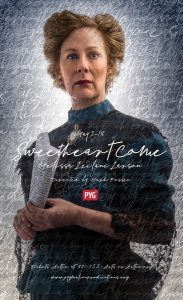 Melissa Leilani Larson. Sweetheart Come.PYGmalion Theatre Company, SLC, May 3-18. Staged reading, May 1, 2018. Staged version in Spring 2019. Based on a true story of a 1909 woman in Germany who was left in a psychiatric clinic because of dementia.
Melissa Leilani Larson. Sweetheart Come.PYGmalion Theatre Company, SLC, May 3-18. Staged reading, May 1, 2018. Staged version in Spring 2019. Based on a true story of a 1909 woman in Germany who was left in a psychiatric clinic because of dementia.
Miranda Giles, UTBA: “In her new play, Sweetheart Come, Utah native Melissa Leilani Larson deftly manages to immerse the audience in a world of longing, beauty, passion, and horror. Like the proverbial frog in the pot, I did not notice until the final bow that the storytelling had physically moved me from comfortably sitting back in my chair to a weepy huddle on the edge of my seat. Just as the protagonist, Emma Hauck, says of herself, this production is “haunted by so many beautiful things.” . . . While at first glance the play is straightforward in its high-talk, low-action plot, it belies the deep questions explored regarding the nature of womanhood, intimate relationships, and mental and emotional health. As the story unfolds, Emma shares her history of childhood trauma, her anxieties as a mother, and her fraught relationship with her own body. In the first conversation of the play, she asks August to act as her emissary to the people of the town who seem to only know her as her husband’s pretty wife. She strongly resents any valuation given for her pretty face alone. She wishes to be known for her ideas, and yet her anxiety about failing to live up to expectations renders her all but mute outside her own home. Her zest for life and love of beauty is haunted by a constant pressure to fulfill the expectations placed on her in her roles of respectable wife, doting mother, grateful daughter, and responsible homemaker. She is reminiscent of Ibsen’s Nora from A Doll’s House, and I found myself wondering what she might have been if she were freed from all those constraints. This story, based on the real Emma Hauck, has much to say to a modern audience, and so accept my invitation: Sweetheart, Come.”
Melissa Leilani Larson. Bitter Lemon. June 21-29. Creekside Theatre Festival, Heritage Park, Cedar Hills, UT. Melissa says she was commissioned “to write a play that would be performed cold, without rehearsal or any character prep, by two different actors each night. The plot of the play is a mystery to both the actors and the audience as they go. Well, that play, BITTER LEMON, opened tonight at the Creekside Theatre Festival in Cedar Hills. And I’m pleased with the resulting one-act. I’m grateful to Jordan and Nicole Robinson Allen for letting me be part of their grand experiment, and to all of the incredibly brave and talented actors who are willing to let me lead them to a precipice only to push them off.”
Melissa Leilani Larson. Cherry Pie. Part of the Page-to-Stage Festival, which runs June 21 – 29 at Wasatch Theatre, Salt Lake City. 10 minute play, part of a program of 5 short plays by members of the Utah Playwrights Collective.
Ariel Mitchell. A Second Birth. March 1-24, The Center at West Park, NYC. Theater Artist Residency Program. AML 2013 winner. In a rural village in southern Afghanistan, a family struggles with the tradition of bacha posh – the practice of raising a daughter to act, dress, and behave like a boy. As her feminine features begins to blossom, Nasim(a) must confront the relationships of her past and the traditions of her future to find out who she truly is.
Lansing McLoskey (music) and Glen Nelson (liberetto). The Captivity of Hannah Dunston. Opera. Guerilla Opera company commissioned it. May 30 preview. Haverhill, MA. Based on the true story of a colonial woman who was kidnapped by Abenaki Indians. Boston Classical Review.
Frances Smeath. Shaking the Earth. Jun 14 – Jun 22, Third Space Studios, 247 Center Street, Provo, UT. Deseret News review.
Jonathan Penny (book and lyrics) and Mark Mitchell (musical settings). Home/front. Raymond Broadway Theatre, Raymond, Alberta, June 2019.
Ted Bushman. Theodore in the Valley. Kickstarter. A folk musical in the style of Once or Bright Star, about Teddy Roosevelt’s journey from a sickly young boy to the man who saved America’s wilderness. It’s about nature, about the National Parks, and about the power of the outdoors to heal us.
A semifinalist for the most important musical theater development lab in the country and was just chosen as one of kickstarter’s “Projects We Love”.Instagram: @theodoreinthevalleymusical
Kickstarter: http://kck.st/2Q6WyTP
Tony Gunn recently joined the BYU Theater and Media Arts faculty for a one-year faculty appointment. Gunn got both his BA and MA from BYU, and received his PhD in Theatre Studies from Florida State University. Recently, Gunn’s play, Volition, was performed as a part of Odyssey Theatre’s most recent 10-minute play festival from May 9 – 12 in Sarasota, FL.
Film
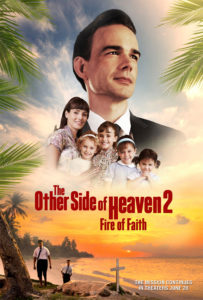 The Other Side of Heaven 2: Fire of Faith. June 28, 2019. Mitch Davis, director. Steven Lee, producer. TC Christensen, cinematographer. Marshall Davis, editor. Molen and Disney not involved this time. Elder John Groberg, though this time he has returned to Tonga in the 1960s as a married man with five daughters. Drama revolves in large measure around Groberg’s son, who is born so ill that he is unable to even leave Tonga for the medical care he needs to survive.
The Other Side of Heaven 2: Fire of Faith. June 28, 2019. Mitch Davis, director. Steven Lee, producer. TC Christensen, cinematographer. Marshall Davis, editor. Molen and Disney not involved this time. Elder John Groberg, though this time he has returned to Tonga in the 1960s as a married man with five daughters. Drama revolves in large measure around Groberg’s son, who is born so ill that he is unable to even leave Tonga for the medical care he needs to survive.
Sean P. Means, Salt Lake Tribune. 3 stars. “The care and attention that Davis applies to this universal story is so encompassing, so nondenominational, that one need not be a Latter-day Saint to appreciate it. The only exception to this is the inclusion of Thomas S. Monson (Russell Dixon, a dead ringer) here as Groberg’s church boss and later in life as the church’s president and prophet, in scenes that will leave nonmembers scratching their heads a bit. With Davis’ careful direction, Gorham’s empathetic performance and some beautiful scenery of Fiji (where the movie was shot), “The Other Side of Heaven 2: Fire of Faith” becomes a quietly powerful story of the healing power of community and faith.”
Josh Terry, Deseret News. “A compelling symmetrical study of two fathers wrestling with tragedies beyond their control. While the theme of fatherhood and faith will ring universal to many audiences, Davis’ story is still very Latter-day Saint-specific, and viewers outside the faith may struggle to connect to its many inside references. But Gorham — reprising the role he played in the first film — is a likable and relatable protagonist, and manages to carry the film, supported by a moving turn by Baker. The cumulative effect elevates “Fire of Faith” beyond what initially feels like a simple series of adventures in the islands, and leaves audiences with a much more thoughtful examination of its subject.”
Christy Lemire, RogerEbert.com. 1.5 stars. “Purely from a production-value standpoint, the sequel is more accomplished than most faith-based movies, and that includes its 2001 predecessor . . . But Davis’ dialogue remains clunky and he never misses an opportunity to punctuate every feel-good moment with overwhelming, swelling music. He draws stiff performances from most of his actors, whose interactions are often painfully awkward. And as was the case with the original film, the structure is predictably episodic: Something potentially catastrophic happens, the characters pray, then a miracle occurs, over and over again. It’s fine for its target audience and probably quite affirming for those who already believe, but it’s unlikely to convince viewers outside the faith.”
The Fighting Preacher. July 24. Written and directed by T. C. Christensen. The story of Willard and Rebecca Bean — who served a 24-year mission in Palmyra, NY, from 1915 to 1939, and who pushed back against prejudice with kindness and patience.
Sean Means, Salt Lake Tribune. 3 stars. “Christensen, who wrote and directed, infuses a gentle humor to the Beans’ story, capturing Willard’s good-natured sarcasm — saying “thanks for the welcome” to men who greet him with shotguns, for example — and a streak of goofiness. (A scene where Willard slowly catches onto Rebecca’s hints that she’s pregnant is a small delight.) The deeply faithful will appreciate the occasional name-dropping, like when a young missionary visiting the Beans introduces himself as Gordon Hinckley, who would decades later become the church’s president. Christensen has explored early history of the church before, with pioneer tales like “17 Miracles” and “Ephraim’s Rescue,” but here his focus is not on great accomplishments but small ones. The big “event” of the story, when the ex-boxer Willard takes on all comers in the ring, is nicely realized with plenty of humor — but it’s ultimately a backward step in the Beans’ spiritual journey. What wins over the folks in Palmyra isn’t the gloved fist of a fighter, but the outstretched hand of a neighbor.”
Josh Terry, Deseret News. 3 stars. For Latter-day Saints, the new subject matter will underscore Christensen’s missionary message, but on a more universal level, McConnell’s Willard works well as an appealing but flawed character trying to work through his weaknesses on behalf of a noble cause. Willard’s arc pulls the story together effectively and gives “Fighting Preacher” a tighter narrative. “Fighting Preacher” also features some interesting and at times moving moments, such as the late-night sight of Palmyra locals digging for gold on the Hill Cumorah, or a late poignant scene where Willard reveals an unexpected bit of his past with another local. The moments of sincerity and drama tend to work more consistently than the comic beats, but a strong character arc and an instructive message give “Fighting Preacher’s” unique story some worthwhile meat. Though the results will likely bear the most meaning for members of The Church of Jesus Christ of Latter-day Saints, Christensen’s effort should carry value for anyone interested in the Biblical admonition to “love one another.”
Heart of Africa. Directed and co-written by Tshoper Kabambi, co-written by Margaret Blair Young. Several screeings in Summer 2019.
Eric W. Phillips was a writer and writer’s assistant for The Umbrella Academy, a Netflix original series, Feb. 2019. Graduated from UVU, studying theater.
The LDS FilmFestival was held in May. Kels Goodman is the current president. Jury and audience awards were chosen in several categories. Here is the video of the award show.
Feature Film: Jury: 1. Jane and Emma. 2. Little Women. Audience: Jane and Emma
Short Documentary Film: Jury: 1. The Artifact Artist. 1. In God We Trust (tie). 2. My Last Word. 3. MAAME. Audience: Running for Hope
Feature Documentary Film: Jury: 1. The Jets: Making it Real. 2. I Saw The Hosts of the Dead. 3. Black, White, and US. Audience: Black, White, and US
Short Film: Jury: 1. Anna. 2. To Have and to Hold. 3. Gather. Audience: Long Haul
Lifetime Achievement Award in LDS Entertainment: Janis Kapp Perry


